| کد مقاله | کد نشریه | سال انتشار | مقاله انگلیسی | نسخه تمام متن |
|---|---|---|---|---|
| 4269420 | 1610844 | 2015 | 8 صفحه PDF | دانلود رایگان |
IntroductionMen referred for borderline testosterone levels represent an increasingly common clinical scenario, yet there is little literature on this population.AimWe hypothesized that men referred for borderline testosterone levels would have higher rates of depression and depressive symptoms than the general population.MethodsSubjects included 200 adult men (mean age of 48 years old) referred for borderline total testosterone levels between 200 and 350 ng/dL (6.9–12 nmol/L). Collected data included demographic information, medical histories, medication use, signs and symptoms of hypogonadism, and assessments of depressive symptoms and/or a known diagnosis of depression or use of an antidepressant.Main Outcome MeasuresThe main outcome measure was a combination of known depression, current use of an antidepressant, and/or depressive symptoms according to the Patient Health Questionnaire 9 (PHQ‐9) with scores ≥10 considered positive.ResultsDepression and/or depressive symptoms were present in 56% of the subjects. This rate was significantly higher than rates of 6–23% (PHQ‐9 scores ≥10) seen in general populations. Antidepressant use was 25%. The population was notable for high rates of overweight/obesity and physical inactivity. Common symptoms were erectile dysfunction, decreased libido, fewer AM erections, low energy, and sleep disturbances.ConclusionsWhile sexual and nonspecific symptoms (i.e., fatigue) likely prompted measurements of testosterone in this selected population, clinicians should recognize the high rates of depression and depressive symptoms in men referred for borderline testosterone levels. Clinicians should consider screening for depression/depressive symptoms and overweight and unhealthy lifestyle risk factors in men referred for tertiary care for potential hypogonadism. Westley CJ, Amdur RL, and Irwig MS. High rates of depression and depressive symptoms among men referred for borderline testosterone levels. J Sex Med 2015;12:1753–1760.
Journal: The Journal of Sexual Medicine - Volume 12, Issue 8, August 2015, Pages 1753–1760
